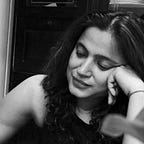God is Dead, Man is Free: The Weight of Responsibility in a Godless World
The proclamation “God is dead” by Friedrich Nietzsche in the 19th century sent shockwaves through the philosophical and religious communities. It was not a declaration of atheism or a celebration of the absence of a divine being. Still, rather a profound reflection on the consequences of a world where traditional values and moral structures, once grounded in the belief in God, no longer held sway. The phrase challenges us to consider what it means to be truly free in a world without a higher authority to guide or judge us.
The Illusion of Freedom
At first glance, the notion that “God is dead” might seem liberating. Without a divine entity to answer to, man appears to be free — free to shape his destiny, create his values, and live by his own rules. This newfound autonomy can feel empowering, as if all constraints have been lifted, allowing for the full expression of human potential.
But is this freedom as liberating as it seems? The absence of God does not just remove the constraints but also the comfort of a guiding hand. The moral and ethical frameworks that once provided structure and meaning to life are now in question. In a world without God, the responsibility for creating and upholding these values falls entirely on man. The weight of this responsibility can be overwhelming, as it requires not only the creation of a moral code but also the continual effort to live by it.
The Burden of Responsibility
In a Godless world, man is no longer bound by divine commandments or religious doctrines, but this also means that man can no longer rely on these frameworks to justify his actions. He must become his own moral compass, his own source of meaning and purpose. This shift places an immense burden on individuals, as they must navigate the complexities of life without the certainty and security that a belief in God provides.
This newfound responsibility requires man to be more vigilant, more thoughtful, and more ethical than ever before. Without the concept of divine judgment or an afterlife, the consequences of one’s actions are immediate and tangible, affecting oneself and others in the here and now. The absence of God means that man must take full ownership of his choices and their impact on the world, which can be both empowering and terrifying.
The Path to Authentic Freedom
True freedom, then, is not the absence of constraints, but the ability to choose and act responsibly within those constraints. When man assumes the responsibility that was once attributed to God, he must cultivate a deeper sense of morality, empathy, and accountability. This is not an easy task, as it requires constant self-reflection, discipline, and a commitment to the well-being of others.
In a world where God is dead, man must become more than just free — he must become responsible. He must embrace the challenge of living a meaningful life, not because it is divinely ordained, but because it is consciously chosen. This path to authentic freedom is fraught with difficulties, but it is also where man can find his true potential.
By shouldering the responsibility that comes with freedom, man can create a just, compassionate, and fulfilling world. The death of God is not the end of morality, but the beginning of a more profound, self-determined ethical life. In this way, the declaration that “God is dead” becomes not a lamentation, but a call to rise to the occasion, to take charge of our destiny, and to live with integrity in a world where we alone are the architects of our fate.
